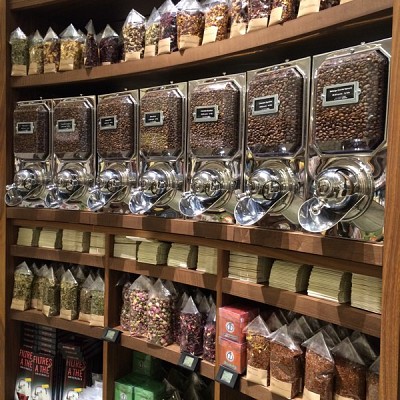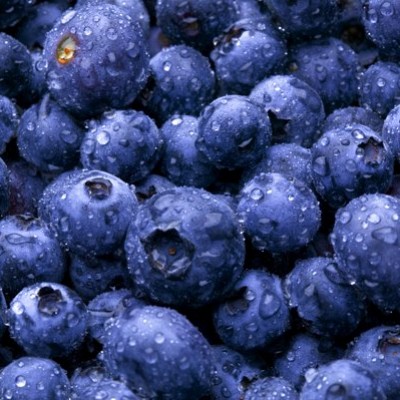When it comes to purchasing wholesale produce, ensuring the freshness and quality of the products is crucial for maintaining both the satisfaction of your customers and the integrity of your business. Fresh produce not only affects the flavor of the food you’re serving or selling, but it also impacts your reputation. Whether you’re buying for a restaurant, grocery store, or farm market, maintaining high-quality standards is key to success. In this guide, we’ll cover seven essential ways to help you guarantee that the produce you buy remains fresh, high-quality, and suitable for resale.
Finding Reliable Wholesalers
One of the most important steps when purchasing wholesale produce is choosing a reliable supplier. Without a dependable source, it becomes challenging to ensure the quality of the products you receive. A reputable supplier, such as a trusted fruit wholesalers, will offer produce that consistently meets the freshness standards you need. Look for wholesalers with a solid track record, positive customer reviews, and a transparent supply chain. Additionally, it's beneficial to select wholesalers who maintain strong relationships with growers and farmers, as this indicates a commitment to sourcing the best possible produce.
Understanding the Storage and Handling Processes
Freshness largely depends on how food is stored and handled before it reaches you. Proper temperature control is vital in maintaining the longevity of fruits and vegetables. Ensure that your wholesaler adheres to best practices when it comes to refrigeration and storage. For example, some fruits and vegetables require different temperatures or humidity levels to stay fresh. By understanding these needs and communicating them with your supplier, you’ll be better prepared to receive produce at its peak quality.
Evaluating the Delivery and Shipping Conditions
Shipping conditions can drastically impact the quality of your wholesale produce. Pay close attention to delivery times and the packaging methods used by your wholesaler. If shipping takes too long, the produce may spoil or degrade in quality. Similarly, poor packaging can lead to bruising or damage during transit. Choose a wholesaler that guarantees quick shipping times and uses quality materials to protect the produce during delivery. You may also want to ask if they offer refrigerated or temperature-controlled transport, particularly for delicate or perishable items.
Building Relationships with Local Farmers and Growers
One of the best ways to guarantee freshness is by sourcing produce from local farmers and growers. The closer the source, the shorter the time it takes for produce to reach you, ensuring its freshness. By developing relationships with local growers, you not only have the opportunity to inspect the quality of the products firsthand but also reduce the time the produce spends in transit. This can lead to a fresher product with a longer shelf life. Plus, buying locally helps support regional economies and sustainability efforts, which can be a great selling point to your customers.
Inspecting the Produce on Arrival
When wholesale produce arrives, it’s essential to take the time to thoroughly inspect each batch to ensure it meets your quality standards. The condition of the produce upon arrival directly impacts its shelf life and, ultimately, your customer’s experience. Begin by carefully checking for any visible signs of damage, such as bruising, cuts, or discoloration, which could indicate that the produce has been mishandled during transit or is beginning to spoil. This is particularly important for delicate fruits and vegetables that are prone to bruising, like berries, peaches, and tomatoes. Additionally, look for any signs of mold or wilting, especially in leafy greens or herbs. These signs could indicate that the produce has been stored improperly or has spent too long in unfavorable conditions before reaching you.
Implementing a Rotation System
Even if you source the highest quality produce available, it’s important to have an effective system in place for handling your inventory. Implementing a “first in, first out” (FIFO) rotation system helps ensure that older stock is used or sold before newer stock. This method helps prevent spoilage and waste, particularly for perishable fruits and vegetables that have a limited shelf life. By organizing your stock efficiently and regularly checking for items that need to be used quickly, you can minimize loss and ensure freshness across your entire inventory.
Educating Your Team on Produce Care
Ensuring the freshness and quality of wholesale produce doesn’t only rely on sourcing from the best suppliers; your team’s knowledge and practices play a critical role in maintaining that quality from arrival to sale. It's essential to train your staff on the best methods for handling, storing, and caring for fresh produce, as even small mistakes can lead to significant quality loss. Start by emphasizing the importance of temperature control—different fruits and vegetables have specific temperature requirements, and your team should be able to distinguish which items need refrigeration and which should be kept at room temperature. Additionally, proper handling techniques are key: staff should be trained to handle produce gently to avoid bruising, which can lead to spoilage and waste. This includes using clean, soft surfaces and avoiding stacking items in a way that might cause crushing. It's also important to educate your team on recognizing signs of ripeness and spoilage, as some fruits and vegetables deteriorate quickly once they reach their peak. By teaching them how to spot these early indicators, you can prevent letting subpar produce reach your customers. Furthermore, your team should be trained on the principles of proper inventory management, such as the FIFO (first in, first out) method, to ensure older items are sold or used before newer stock. Regular training sessions can help reinforce these practices, ensuring your staff is always up to date on the latest handling techniques and storage requirements. This commitment to educating your team not only improves the quality of the produce but also boosts the overall efficiency of your business, reduces waste, and contributes to long-term customer satisfaction.
Ensuring the freshness and quality of your wholesale produce requires attention to detail, effective systems, and the right suppliers. By choosing reliable wholesalers, understanding storage and handling processes, evaluating shipping conditions, sourcing locally, inspecting produce on arrival, implementing a proper inventory system, and educating your team, you can guarantee that the fruits and vegetables you purchase are always of the highest quality. Whether you run a grocery store, restaurant, or any other business that relies on fresh produce, these steps will help maintain consistency and customer satisfaction. With the right approach, you’ll ensure that your produce remains fresh from farm to table.






































